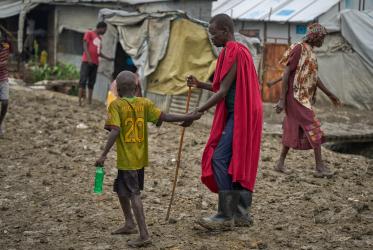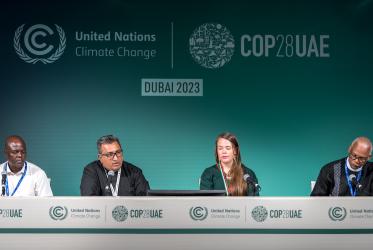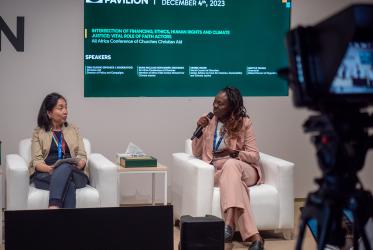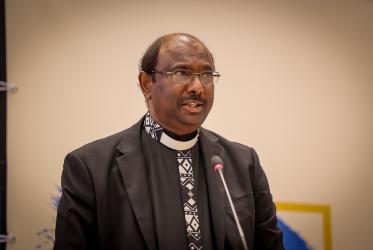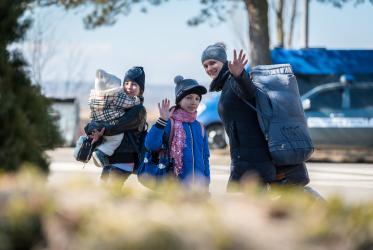Displaying 41 - 60 of 2840
WCC webinar explores decolonizing beauty
11 December 2023
Faith communities advocate for a just transition at COP28 side event
09 December 2023
WCC general secretary commemorates legacy of Nelson Mandela
08 December 2023
Webinar explores how churches can seek truth amid misinformation
07 December 2023
Towards a Global Vision of the Church, Volume II
Explorations on Global Christianity and Ecclesiology, Faith and Order Paper 239
27 November 2023
WCC institute encouraged rethinking theology
23 November 2023
Public lecture by the WCC general secretary "A Christian Voice in a World of Conflict”
27 November 2023
Online - Zoom or Facebook @OfficialSACC
